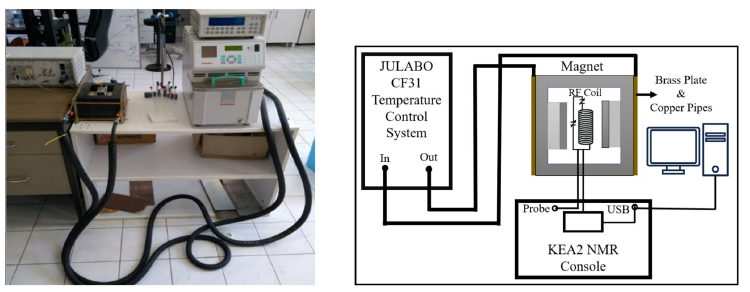388. Comparison of homemade TD-NMR device and commercial devices for detection of oil adulteration
Ayşe Maraşlı, Cengiz Okay, Özgül Karataş, Georgy Mozzhukhin and Bulat Rameev; The European Physical Journal Plus (2023); DOI: 10.1140/epjp/s13360-023-03980-9
The analysis of edible oils, which have an important place in human health, is very significant. One of the most widely used edible oil is olive oil, which unfortunately is very frequently adulterated by adding a different, cheaper oil to reduce its cost. Therefore, a useful and economical method or device is needed to detect counterfeiting and adulteration of oils. In this study, a low-cost, easy-to-use, lightweight, and practical time-domain nuclear magnetic resonance (TD-NMR) device was developed for quality control and food safety applications, including testing edible oils. For this purpose, a measurement system, consisting of an O-shaped magnet with NdFeB permanent disc magnets, a radio frequency (RF) detection probe and a temperature stabilization/control system, was designed. Using this homemade device, the spin–lattice (T1) and spin–spin (T2) relaxation times of seven different olive oils were measured. The received results were compared with those obtained by two different commercial low-field NMR (LF-NMR) devices. It was established a good agreement between the experimental results obtained on the homemade system and the commercial LF-NMR devices. Detection of various grades of olive oil, as well as oil adulteration, was demonstrated for a set of different olive oils and a mixture of olive and sunflower oils using the developed homemade TD-NMR device.
